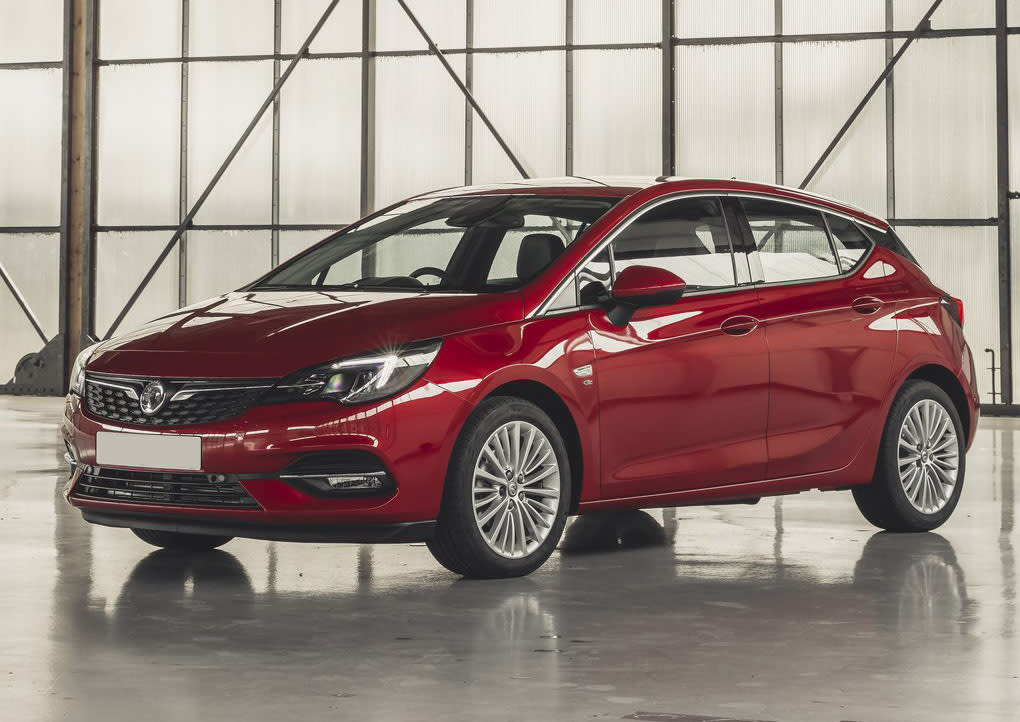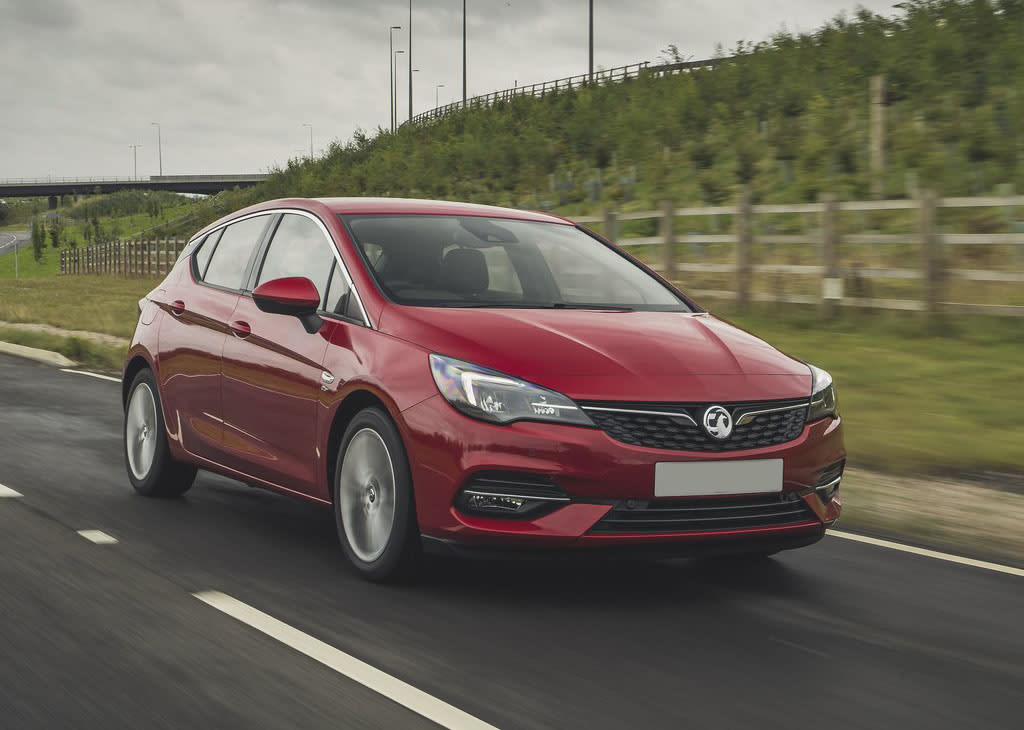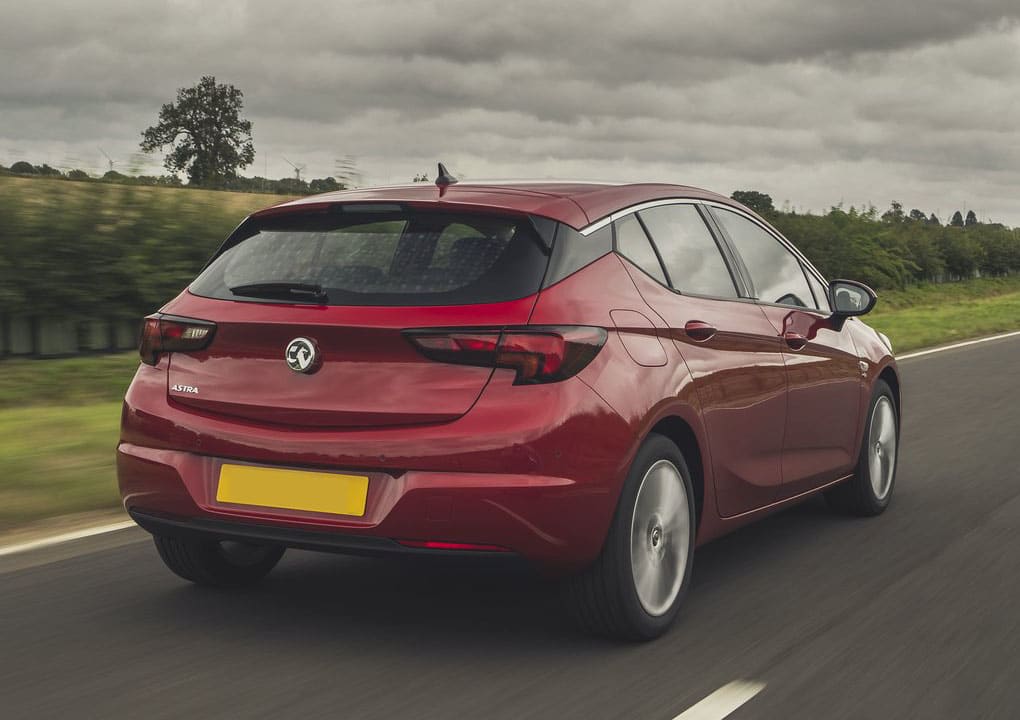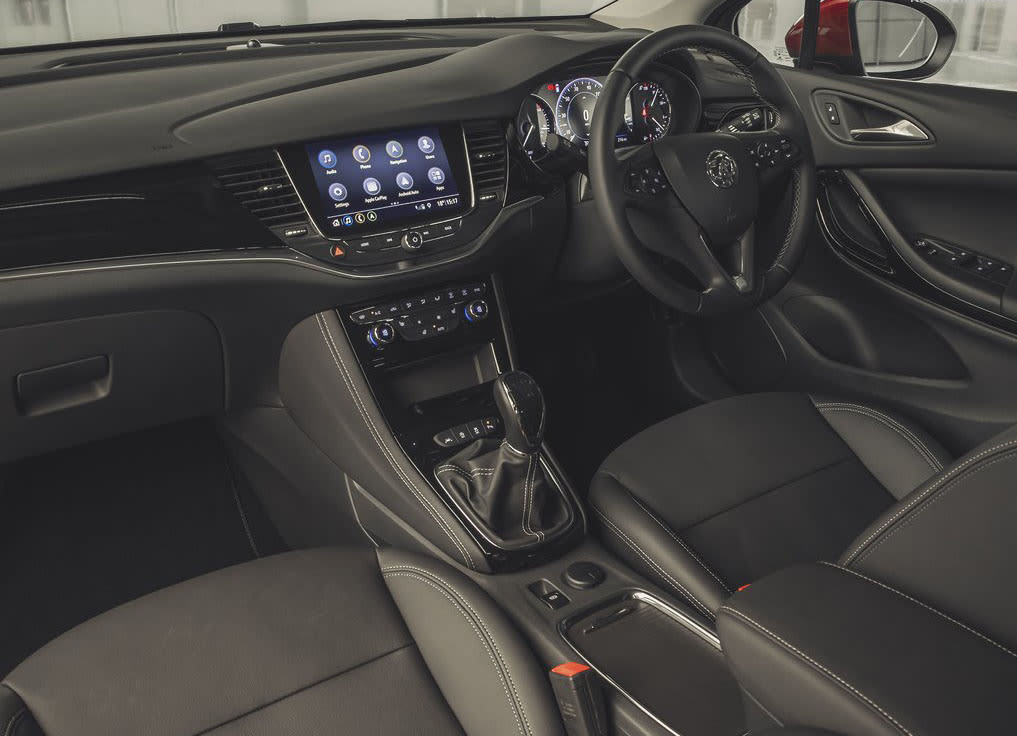
Vauxhall Astra Review

Introduction
The Astra had a recent mid-life refresh, although you’ll be doing well if you can tell by looking at it as the cosmetic changes are so slight that it’s tough to spot. Vauxhall tells me the front grille, bumper and lights are different (I’ll take their word for that) but it’s the engines that are the real talking point, with new designs being slotted under the bonnet promising impressive efficiency.
Review Sections
Select's rating score* - 3.7 / 5
At a Glance
The UK had something of an obsession with hatchbacks, with models from Ford and Vauxhall dominating the sales charts before the rise of SUVs and premium brands squeezed the likes of the Astra out of favour.
But to dismiss the all-round appeal of a hatchback would be a mistake, and to dismiss the Astra would be an even greater error. Vauxhall has fiddled with, updated and refreshed the Astra for 40 years, and the latest models are frugal, comfortable and practical.
Key Features
Performance & Drive
Few drivers will ever explore the dynamic limits of either the Ford or the Vauxhall though, so it’s fair to say there’s not much between them in terms of excitement and ability.
Running Costs
Chasing efficiency gains means the Astra is an economical motor to run, both in terms of fuel and general running costs. Our 1.2-litre 145hp model promises fuel economy returns of as much as 54.3mpg, which is impressive for a small petrol engine. It’s not unrealistic, either, as our time behind the wheel saw the car’s computer suggest we’d achieved 48.9mpg.
Emissions
Interior
Inside the changes are equally subtle, with a new digital screen in the centre of the instrument binnacle being the most obvious update. The infotainment system also gains a larger 8.0-inch screen (at least on higher-spec levels) while there’s Android Auto and Apple CarPlay across the entire range, and slightly plusher trim. It’s not game-changing, but it’s a pleasing update
The rest of the car remains much the same as it did before, so there’s a pleasant and comfortable interior that’s loaded with equipment, at least on this Elite spec model. That infotainment system includes European navigation, a DAB radio, Bluetooth connectivity, and those smartphone mirroring choices, all presented in an easy to use interface.
There’s also leather seat trim with a heated leather-covered steering wheel. Both front and rear seats are heated, while those in the back also get a couple of USB sockets which should keep youngsters quiet.
While life at the top of the range is pleasant, you lose adjustable lumbar support on the SE and Business Edition models, and only the SRi model gets well-bolstered sports seats. Only the Elite model gets the 8.0-inch screen, too, with every other car making do with a less impressive 7.0-inch variant that is just ever so slightly too small.
It’s all wrapped up in a cabin that’s built well and has plenty of impressive soft-touch materials and gloss black or chrome trim inserts. It feels a more premium environment than that of the Ford Focus, but it can’t quite match the latest Volkswagen Golf- or Skoda Octavia, for that matter.
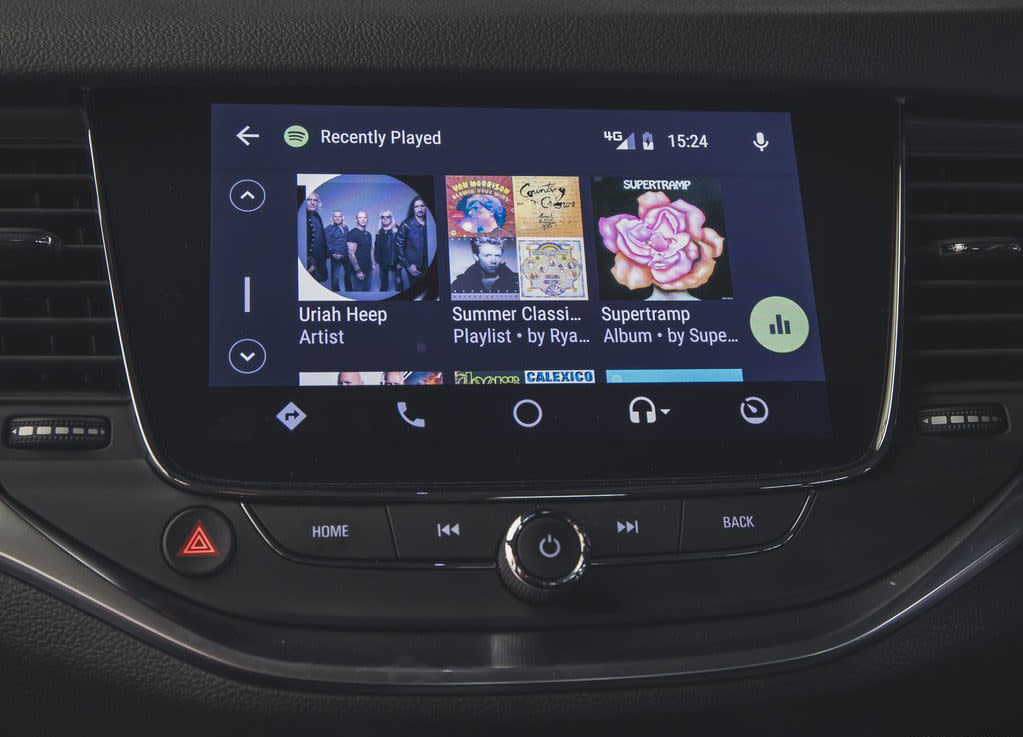
Technology
It’s consigned to the options list, but Vauxhall’s IntelliLux LED headlights are something of a talking point. Once the preserve of high-end safety-led cars such as the Volvo XC90, the lights automatically adapt to conditions to make driving safer and more comfortable.
Practicality & Boot Space
The swept roofline of the Astra suggests space might be at something of a premium, but it turns out that there’s plenty of room inside Vauxhalls’ finest.
There are certainly no complaints at the front, with enough head, elbow and legroom for all to get comfortable. The driving position is solid too, with good pedal locations and adjustable steering. The rear is more impressive, with enough headroom and lots of legroom
Sitting three adults in the rear will be a bit of a squeeze, as is common in cars of this size, but it’s not unbearably uncomfortable. Deep windows let in a lot of light, too, ensuring it doesn’t feel claustrophobic.
The boot is decent, if not noteworthy. At 370-litres, it’s capacity all but matches the Ford Focus and Volkswagen Golf’s boot, but is a long way behind the Skoda Octavia’s back end. There are no special tricks either, with rear seats folding down conventionally in a 60/40 split to leave a spacious but not flat cargo area. There’s no adjustable floor, either, leaving a large lip to haul heavy goods over.
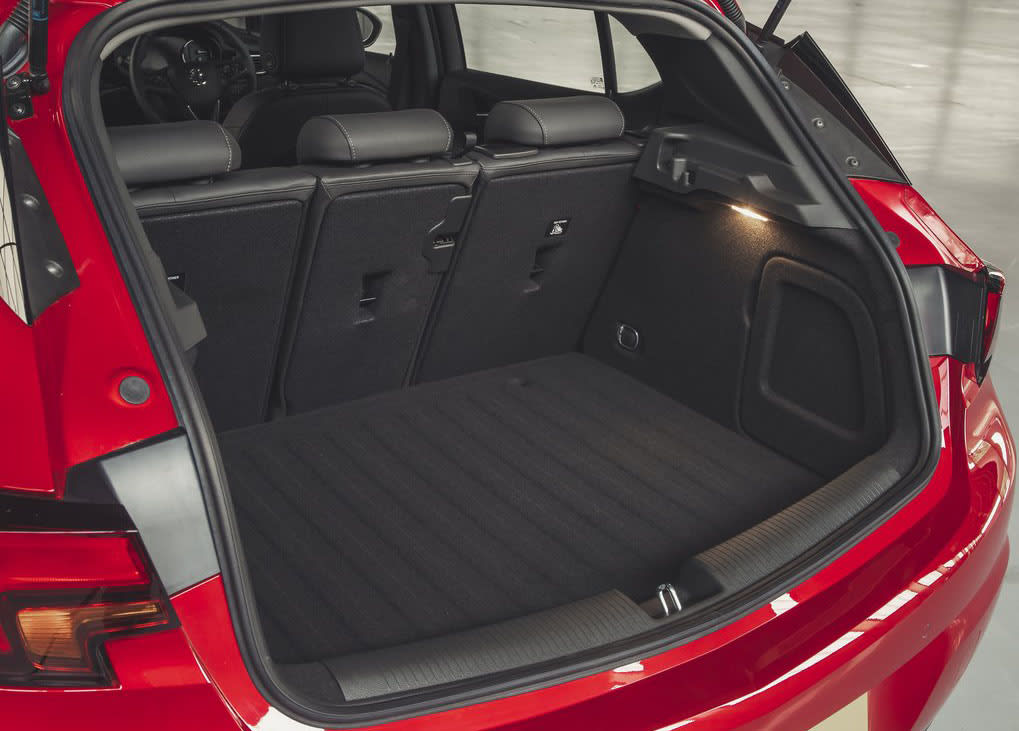
Safety
Options
Vauxhall has followed other manufacturers in keeping options to a minimum and concentrating on making trim levels comprehensive enough to appeal to all requirements.
The range starts with the SE, which still gets a 7.0-inch infotainment centre, DAB radio with Android Auto and Apple CarPlay, as well as air-conditioning, electrically adjustable and heated mirrors, and a suite of driving aids.
Moving to the Business Edition, a name that suggests just who Vauxhall is targeting with this trim, adds navigation and automatic lights and wipers.
Don’t be followed by the SRi badge on the next grade, as this isn’t a sporting proposition. Some supportive sports seats are about as hot as things get, but there are larger 17-inch alloy wheels, LED headlights, and some more safety kit. Navigation is a £500 option.
Finally, the Elite spec adds, well, everything. The infotainment is upgraded to 8.0-inches, there’s a large digital panel in the instrument binnacle, the seats are covered in leather, a rear-view camera is added and there’s now dual-zone climate control.
Options are limited, but the one impressive addition is the £1,500 headlight system, called IntelliLux LED Pixel headlights by Vauxhall. These are superb, and make night-time driving easier and safer. It might sound a lot, but could be worth every penny.
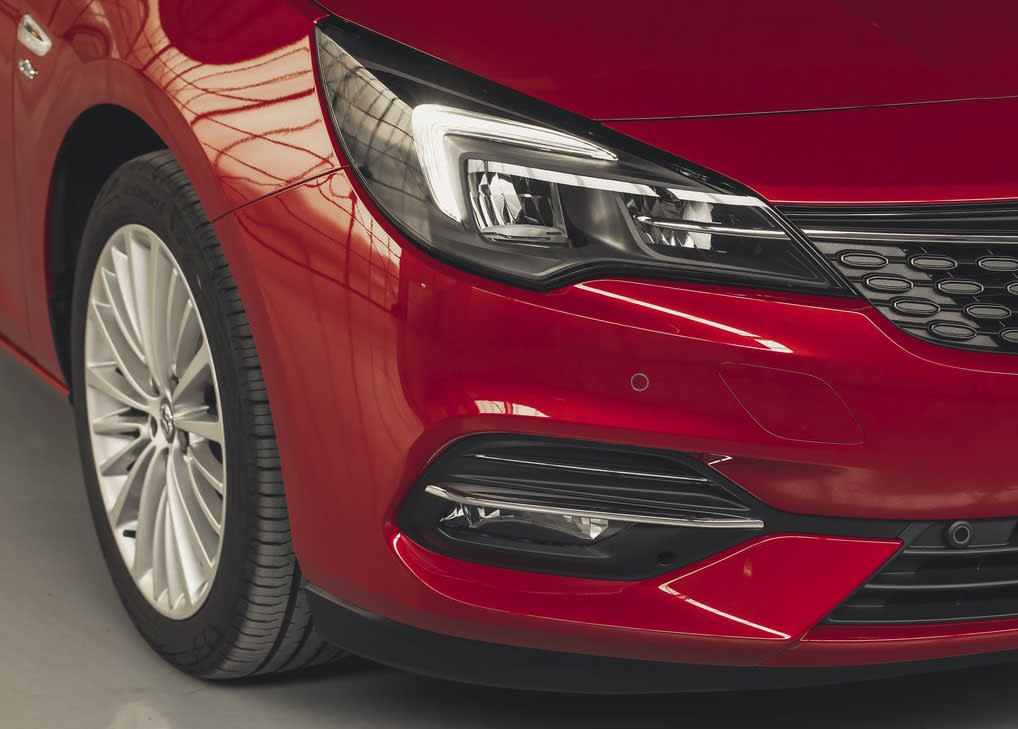
Rival cars
The most obvious rival for the Astra is Ford's Focus, a mainstay of the UK car market. It’s more fun to drive than the Astra, and every bit as spacious. The ST-Line model strikes a great balance between driving engagement, efficiency and luxury, and could be as much car as anybody needs.
Volkswagen’s eighth-generation Golf majors on technology, with an impressive cabin filled with touch panels and digital screens. However, it can all get a bit much, with the reliance on tech taking away from the simplicity of the car. The quality of materials has also taken a backward step.
A Skoda Octavia is a more spacious, equally efficient option, but many might choose to head to a pseudo-SUV in the form of the Skoda Kamiq. This SUV has a distinctive style that stands out from the anonymous crowd of hatchbacks, but doesn’t have the SUV dimensions you might expect, making it more of a practical hatchback-plus-a-little-bit.
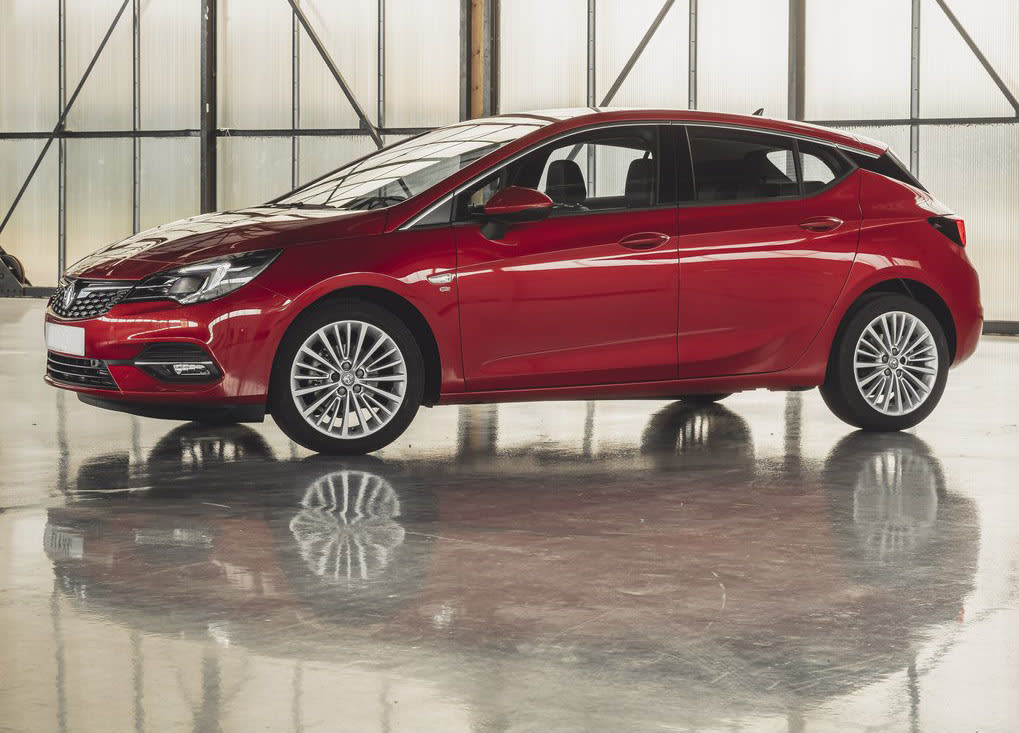
Verdict & Next Steps
The Vauxhall Astra might be a car people forget about, as it tends to fade anonymously into the background, but it’s always had a lot to offer. For the fleet manager, the improved efficiency and lower CO2 emissions, as well as long service intervals, could well swing any leasing decision the Astra’s way.
However, even without the fleet-friendly financials, the changes made to the Astra makes it as good as anything else out there, which is not something I was expecting to say.
Where to next?
View latest Vauxhall Astra car leasing deals- from just £201.22 per month inc VAT**
Looking for a great leasing deal? Check out our incredible range of car lease deals
New luxury hatchback? Read our latest Car Reviews and find the right model for you
Want to know more about leasing? Take a look at our comprehensive Leasing Guides
Interested in everything motoring? Why not catch up on all the latest Car Leasing News.
*Score based on Select’s unique meta score analysis, taking into account the UK’s top five leading independent car website reviews of the Vauxhall Astra
**Correct as of 19/03/2021. Based on 9 months initial payment, 8,000 miles over a 48 month lease. Initial payment equivalent to 9 monthly payments or £1810.94 Ts and Cs apply. Credit is subject to status.
